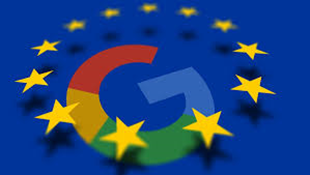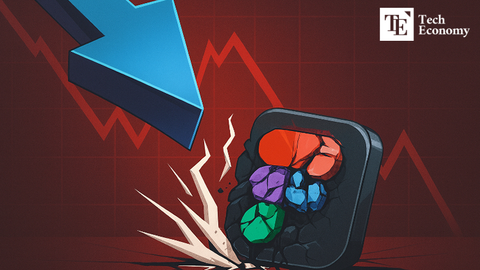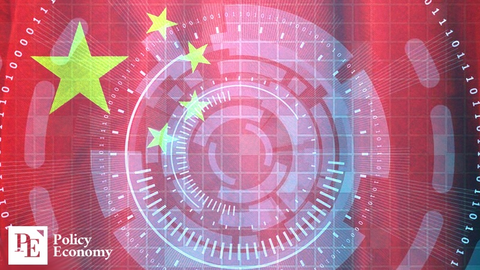US Requests EU Antitrust Chief Clarification on its Hardline Policy in US Big Techs
Input
Changed
US' Demand for Clarification The EU's Hardline Policy on Big Tech A Possible Reset in US-EU Relations

US' Demand for Clarification
In recent weeks, tensions have escalated between the United States and the European Union over antitrust measures aimed at regulating Big Tech companies. The European Union's aggressive stance on American tech giants has been fiercely criticized by the United States, particularly under the influence of former President Trump. This has resulted in a renewed demand for clarity on the EU's regulatory framework.
This conflict is the result of the EU's ongoing endeavors to impose more stringent regulations on companies such as Apple, Google, Facebook (now Meta), and Amazon. The United States has expressed growing apprehension regarding what it perceives as a discriminatory, unfair regulatory environment that targets its major companies, despite the fact that the European Commission, under the leadership of antitrust chief Margrethe Vestager, has consistently maintained a tough stance against the monopolistic practices of these tech giants.
The most recent development occurred in late February 2025, when US legislators, led by Congressman Jim Jordan, requested that the EU's Antitrust Chief, Margrethe Vestager, provide more detailed explanations of the antitrust regulations that apply to Big Tech. An ongoing dispute regarding the European Union's regulatory approach to large US-based technology firms served as the catalyst for these demands.
Jim Jordan, a prominent Republican figure, expressed apprehension regarding the EU's regulations' lack of transparency and their potential to negatively impact American enterprises. Jordan asserts that the EU's regulatory practices have the potential to impede the innovation of US firms and distort market competition. He emphasized that the European Union's regulations appear to unjustly target American companies, despite its stated objective of protecting consumers and ensuring competition.
This demand from the United States government is indicative of the more extensive tensions between the two political entities in relation to their regulatory strategies for international corporations. The United States has frequently criticized the European Union for its perceived overly aggressive posture, particularly in light of the fact that these regulations disproportionately impact American-based companies.

The EU's Hardline Policy on Big Tech
Given that the European Union has recently filed charges against Google for violating the Digital Markets Act (DMA), the timing of the United States' request for clarification is particularly noteworthy. This regulation has become a significant point of contention in the transatlantic relationship, as it is designed to mitigate the monopolistic tendencies of the largest tech platforms. The European Union's competition authorities are once again investigating Google, one of the world's largest and most influential technology companies, for purportedly violating regulations that prohibit anti-competitive practices.
The EU's regulatory approach is becoming increasingly stringent with respect to US technology titans, as evidenced by the charges against Google. The DMA, which was implemented in 2023, contains provisions that are designed to prevent corporations such as Apple, Google, and Facebook from abusing their market dominance. Google, for instance, is accused of prioritizing its own services over those of its competitors in search results, thereby impeding innovation in the digital marketplace and reducing consumer choice.
The EU's heavy-handed approach has prompted the US government to express its apprehensions. The government contends that these regulations, which are intended to promote equitable competition, could actually harm consumers and restrict the principles of free markets. The global competitiveness of US technology companies, which have propelled significant innovation and technological advancement over the past few decades, is believed to be undermined by the EU's actions, according to American lawmakers, including those close to former President Trump.
The EU has consistently maintained a strict position on antitrust matters, particularly in the context of regulating Big Tech. The European Commission has issued numerous fines to technology titans for a variety of anti-competitive practices during Margrethe Vestager's tenure. In recent years, Google has been subjected to multibillion-dollar penalties for violating EU competition regulations on numerous occasions.
The European Parliament has also expressed its dissatisfaction with the absence of progress in holding US tech firms accountable. European legislators recently urged the European Commission to "not go soft" on US companies, thereby reinforcing the notion that these firms wield an excessive amount of power and influence in the global digital economy. Critics contend that the market dominance of these companies stifles innovation and hinders the ability of lesser businesses to compete effectively in the marketplace.
The EU's concern is not solely about safeguarding competition; it also pertains to the preservation of its digital economy's sovereignty. In a world where tech giants headquartered in the United States possess an immense quantity of data and influence, numerous European policymakers are of the opinion that it is imperative to regulate these companies in order to maintain Europe's competitiveness and to safeguard consumer rights. Nevertheless, this has resulted in heightened tensions between the EU and the US, particularly as the former's regulatory decisions continue to influence some of the largest corporations in the United States.
The EU's approach to regulating Big Tech, particularly in relation to the future of the Digital Markets Act and other related legislation, may be significantly impacted by the US demand for clarification. Although there are no indications that the European Union is compromising its stern position on US technology companies, the US government's pressure may necessitate modifications to the enforcement of these regulations.
This has the potential to alter the balance of power between the two economic titans. The EU may be obligated to relax certain regulations or establish more explicit guidelines for US companies to adhere to its regulations. Nevertheless, the EU may hesitate to take this action for fear of compromising its credibility in regulating Big Tech, as it would be perceived as a significant concession.
Simultaneously, the US government's advocacy for more transparent regulations may indicate a shift in the manner in which American corporations approach the European market. Currently, numerous of the world's largest technology companies have allocated substantial resources to conform with EU regulations. For instance, Google has allocated significant resources to the resolution of antitrust concerns in Europe, and other organizations, such as Amazon and Facebook, have implemented comparable modifications to their operations in order to adhere to local regulations.
Nevertheless, as the pressure increases, certain US technology companies may reevaluate their strategies in Europe, particularly if the regulatory environment becomes even more restrictive or ambiguous. This could result in a circumstance in which American companies are less inclined to invest in the European market, which could potentially disrupt the tech ecosystem in both regions.

A Possible Reset in US-EU Relations
The global competition in the technology sector is intensifying, and the impasse between the US and the EU over Big Tech regulations occurs at a critical juncture. It is uncertain whether the tensions will worsen or if a compromise can be achieved as the US and the EU continue to disagree regarding the role of Big Tech.
In the interim, the topic of antitrust regulation will continue to dominate discussions in both regions. The extent to which the United States will be able to compel the European Union to elucidate its regulations is uncertain; however, it is evident that the relationship between the two major economic powers is being put to the test in novel and intricate ways. In order to maintain their economies' competitiveness and strength in the face of a digital landscape that is constantly changing, both parties will need to meticulously navigate these tensions.
In summary, the US's demand for the EU to elucidate its regulatory framework for Big Tech remains unresolved, and the future of this dispute remains uncertain. It is certain that the outcome will have an enduring impact on the future of antitrust regulation globally and on US tech companies. The future of Big Tech regulation is still uncertain as the US and EU prepare for additional rounds of negotiation and legal challenges. They are seeking a resolution that promotes innovation and competition in the global economy while safeguarding their respective interests.





















